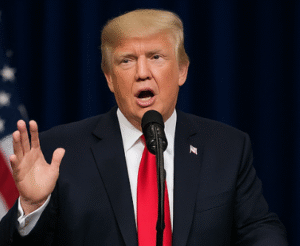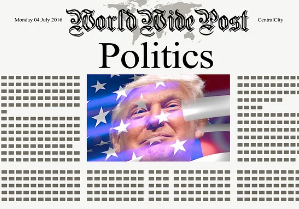$DAL $COF $USD
#TradeWar #Deportation #Colombia #USTradePolicy #Geopolitics #GlobalEconomy #AviationIndustry #FinancialRisk #Diplomacy #USMarkets #EmergingMarkets #TrumpAdministration
The escalating trade tensions between the United States and various global economies have taken an unexpected and almost absurd turn with a diplomatic dispute between the U.S. and Colombia. At the center of this issue lies a dispute over deportation flights, primarily involving the transportation of migrants back to their home countries. While such matters typically fall under diplomatic and legal purviews rather than trade policies, the Trump administration’s choice to tie this disagreement to broader trade and economic tensions underscores the erratic direction of its trade war strategy. Analysts caution that this move, while largely symbolic, introduces unnecessary risks to crucial sectors such as logistics, aviation, and even broader relations with emerging markets like Colombia.
Colombia, being one of the largest U.S. trading partners in Latin America and a significant destination for American exports, could face unintended consequences from this diplomatic spat. The administration’s decision to frame the disagreement over deportation as part of its broader economic aggression highlights the precarious nature of modern geopolitics. From a financial perspective, companies in the aviation industry, particularly those facilitating cross-border travel and freight like $DAL (Delta Airlines), could see disruptions if tensions intensify. Investors may also become wary of exposure to emerging markets amid heightened policy unpredictability, which could lead to volatility in credit products tied to countries like Colombia. Capital flight from Colombia’s financial markets, combined with exchange rate fluctuations in $USD, adds another layer of instability to an already fragile situation.
The politicization of deportation flights also risks derailing progress on a range of trade agreements that have bolstered commerce between the U.S. and Latin America. Sectors such as commodities, agriculture, and energy are interdependent between these two nations, and any deterioration in diplomatic relations could disrupt supply chains across industries. Meanwhile, the Trump administration’s increasingly transactional approach to international relationships could embolden other countries to prioritize political leverage over market collaboration. Investors and corporate stakeholders are closely watching this scenario, recognizing that these ripple effects could impact broader emerging market funds and ETFs often anchored in regional stability.
Ultimately, the dispute showcases the broader inefficiency and potential destructiveness of leveraging trade policies to pursue unrelated political ends. Conflating economic tools with geopolitical intimidation reduces business confidence and further complicates international partnerships. Industries ranging from $COF-financed logistics firms to multinational agribusinesses depending on Colombian exports could face heightened uncertainty. While this specific altercation may seem whimsical on the surface, its broader implications have already set off alarms in financial circles. For market participants, the situation serves as a stark reminder of the fragility of global supply chains and the intricacies of balancing political agendas with economic stability.











Comments are closed.